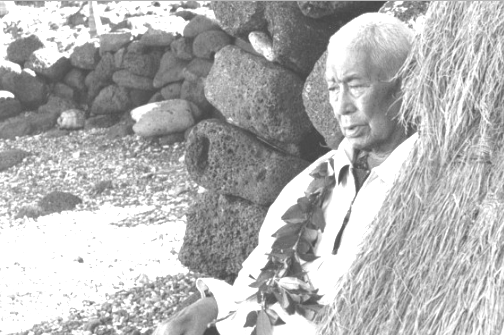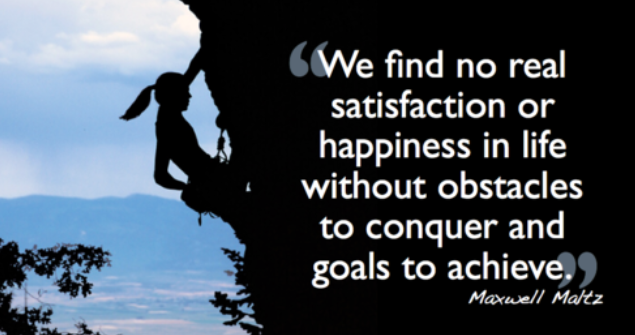The ancient wisdoms resound down the ages to modern times with ideas that we should reconsider in our modern life. Last Saturday at The Weekly Wisdom Games, we played a game based on an old Hawaiian La’au Lapa’au (traditional Hawaiian medicine and spirituality) practice.

Hawaiian Po’okela Kahuna La’au Lapa’au, Papa Henry Auwae
For more than 600 years Hawaii was isolated, which gave this society the chance to explore the self-reflective mind. One of their important discoveries was the mind that the West has yet to fully appreciate: They knew that emotional mind supersedes logical thought. Although we don’t usually realize it, we don’t have enough willpower to override our emotions; instead, we must befriend our emotions.
We can use our minds to guide our emotions if we treat our emotions as we would an honored member of the family. To this end, Hawaiian herbal practitioners taught a breathing practice called “Piko Piko” breathing.
To Hawaiians, the center of anything is the piko. The belly button is a piko, and the center of the taro leaf where the stem connects is also a piko. The Big Island of Hawaii itself is seen as the belly button of the world. They also believed that every human has two pikos, the one at our navel and the other at the crown of our head.
The Wisdom Game players learned to place their bodies in a comfortable, balanced position and were told to begin to breathing deeply so as to allow their bodies to relax into comfort and mindfulness of their breathing. Each in breath, we placed our attention on our lower piko (the navel) and imagined bringing in “life-force” energy, called “mana” from manawai— all the world of the surrounding oceans. Filling our breath all the way up to the top, we imagined our bodies being filled with living energy up to the crown of our head. With each exhale, we let the living energy wash away any tension, tightness, ache, or pain throughout our whole body.
After three or four of these deep cleansing breaths, the game master directed us to fill our bodies with energy on the next breath all the way up to the top and then hold our breaths for just a few seconds. During this pause we were directed to think of one thing we were grateful for. It could be something we wanted more of, or something that we were grateful was not currently occurring. In the Hawaiian language this state of thankfulness is called O’mahalo.
When we had firmly in our minds an image of what we were feeling grateful for, we were directed to place our attention on the second piko at the center of the crown of our head and then forcefully exhale sending our breath and our energy out that piko, rushing up toward the upper world (or heaven) as a rush of emotional release and an energetic gift of thanks to the Hawaiian god Lono and the ancestors, the Amakua. We repeated this simple practice three times, until it became a single unit of behavior, a sort of naturally good habit.
It was amazing to see how magical the changes were that came over the faces and bodies of all the Wisdom Game players as a result of doing this very old practice. It provided a practice we can use for pausing when things are not going as we might like, to take stock of what is happening in our bodies, and then redirect body and mind to a completely different emotional place. So simple. And so profound.
These little “micro rituals” carry great wisdom that we can learn from and use today to make our lives, and the lives of those we interact with and love better.
Try It Out For Yourself
Consider doing this process each morning while your brush your teeth for a week or two. Print this out and put it on your mirror for guidance:
- Relax, ground yourself, become aware and present. Take a few breaths just to get clear.
- Breath in “life-force energy” through your lower piko. Fill yourself up to the crown of your head.
- Think of something for which you feel gratitude and picture it clearly.
- Exhale out through the top of your head all with way up to heaven.
- Repeat two or three more times and check to see if your emotions have become more expansive.
After practicing this for a few days, consider the places in your life where you could benefit from applying a new habit like this. Perhaps you can imagine how different you might feel if each time a family member “got your goat,” you took three deep piko breaths and sent thanks up to heaven. What if each time someone cut you off in traffic, you reframed that as gratitude that you were not just killed, and alternated breaths between the piko in your bellybutton and the one in the crown of your head. Pick your own most common frustrations, of course.
Life is too short to waste time on so much negativity. We all have a right not to be negative. Based on the wisdom of the ancient Hawaiians, we have one more tool we can use to quit being a victim of our habitual emotions and choose to drive our own minds, rather than letting them drive us.
If you like games that grow your skills in life or would like to know more about the World’s great Wisdom Practices and Traditions, come join us each Saturday for a fun way to meet people, practice your English and learn something that will make your life better. That’s what we are about at The Weekly Wisdom Games. To register: http://wisdomgamecr.com/


